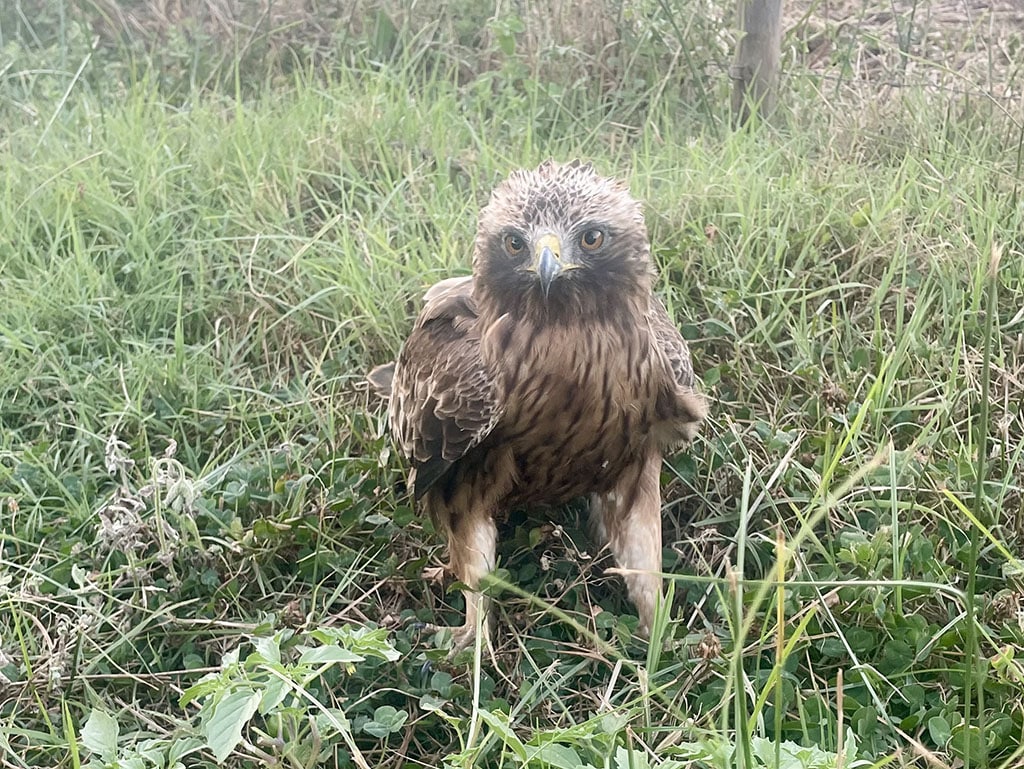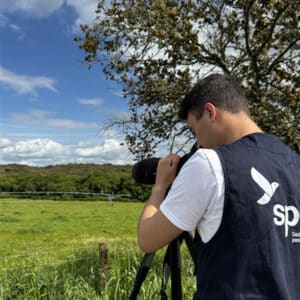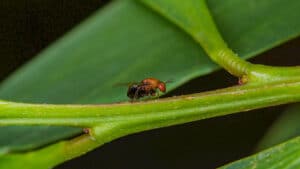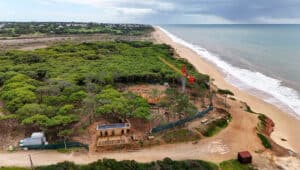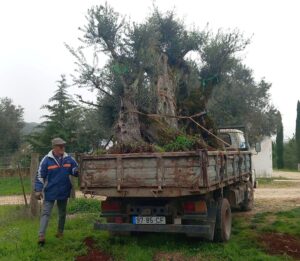I grew up in an ordinary suburb, in central Pennsylvania, on the edge of wilderness. We ran through forests and swam in rivers. It was a good place to grow up, but mostly, I couldn’t wait to leave. I wanted cities, and culture, excitement – real life. And I got all of it in spades – living in and loving several big, beautiful, chaotic cities. So, it’s come as a true surprise – to friends and family, and especially to me – that I am so much in love with life in the countryside.
People often ask me if I get bored. The answer is easy – not for one minute. These past five years since we left Lisbon for Alentejo have been filled with growth and learning, and a feeling of being deeply connected to nature. These things I didn’t see coming, but they have changed me profoundly.
Among my biggest lessons has been learning to speak the language of the land. She speaks to me – to all of us – in so many ways if we learn to listen.

One late summer day, I was vaguely aware of our dogs barking from far away, and realized it wasn’t their normal bark. When I got to them, I saw a large prey bird on the ground, in distress. Her eyes were circles, wide open, looking right at me.
I was on the farm alone that day, so I called our neighbor for help. Together we picked her up and tried to encourage her to fly. She couldn’t. We put her in one of the chicken coops for the night, hoping she would soar in the morning. The next morning, we returned her to the pasture. No luck. She took a few little hops trying to lift off but was unable to fly.
We called the GNR (the police). Two local officers came in their vintage jeep, with a cardboard box from the Adega de Borba, full of holes so that she would be able to breathe. Sometimes things are complicated in Portugal, it’s true; but sometimes they are delightfully easy.

She was sent to the Centro de Acolhimento e Recuperação de Animais Silvestres (CARAS), a rehabilitation center in Évora. The following day we spoke with the team there to understand the problem and the prognosis. Ana Fonseca, who is responsible for admitting the animals, told us that she was receiving food and hydration and would begin training to fly again.
CARAS was founded in 1990 and is one of only two centers in Alentejo, an area that occupies a third of continental Portugal.
When our eagle arrived, she joined storks, bats, eagles, and owls. Mammals, like foxes and hedgehogs, are also cared for. The team is small, comprised of a biologist, environmental engineer, veterinarians, and committed volunteers. They have rehabilitated several thousand animals since they began, some with endangered status. In 2024 alone, 214 animals have entered the center.
CARAS is funded in part by an annual grant but depends on the support of animal lovers to close the gap. As part of that effort, they have created a sponsorship program. In exchange for a donation, sponsors receive regular updates about the animals and the chance to participate in their release.

Our eagle spent a month getting strong and training to fly again. She had a big journey ahead of her. The águia-calçada, or booted eagle, is migratory. At this time of year, her species is preparing to fly to Africa. We had a small window in which to release her so that she could join other migratory birds leaving from Sagres, on the very edge of the continent.
Every October, thousands of bird lovers from around the world converge upon Sagres for the Birdwatching Festival to observe the annual migration. My husband João and I joined CARAS director Ana Rita Sanches and Professor Carlos “Kau” Miguel da Cruz to release our eagle and wish her well on her journey.
The morning was quiet and foggy in the middle of the natural reserve that makes up the southwestern coast of Portugal. The team handed her to us and together we counted – and then released her. She flew straight and strong, speaking a language already deeply coded in her being.

I wondered what she would remember of us, of humans, if anything? What imprint might we have on the life of one eagle? And what imprint has she had on ours? On one level, we saved her. But the question I’m left with is, how do these wild beings save us?
As I continue to gain fluency in this language, of this land, I welcome all the teachers I can find. And while I know she’s gone to Africa, I like to think of her circling above us somewhere, keeping us in view.
Facebook: CARAS – Centro de Acolhimento e Recuperação de Animais Silvestres
Instagram: caras.evora
By Maureen McDermott Carreira
Maureen McDermott Carreira is a certified coach, teacher and writer. She lives between Lisbon and Estremoz (Alentejo), where she is also a part-time farmer, olive oil maker, and lover of the land. She is the founder of “A Field Guide to Mid-Life” for those of us embracing the second half of life with purpose, humor and joy (come hell or high-water).

